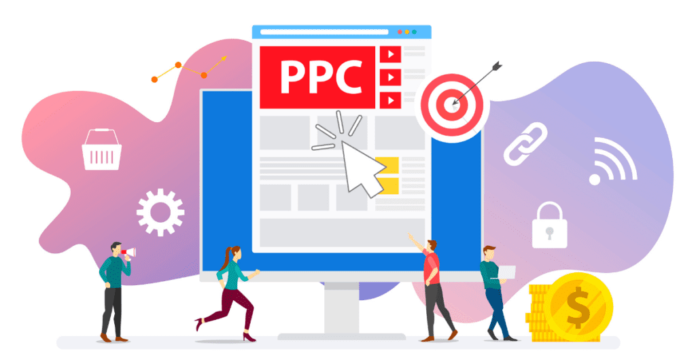Starting a small business may present a ‘horde’ of challenges. Key among them is the need to create exposure by marketing your enterprise. In a competitive or saturated market, the internet, particularly PPC, offers a cost-effective approach to building a business- reaching out to your audience, gaining referrals, raising revenue, and more.
In most cases, a fledgling small business operates on a shoestring budget. Fortunately, PPC advertising can help you stay on budget while enhancing relevant traffic to your website. In short, it works. So…what does PPC mean? Plus, how would it work for a small business? Stick around for answers.
What is PPC?
In web-related lingo, PPC refers to pay-per-click. Typically, it’s a form of digital advertising that uses sponsored links to drive traffic to a site- pop-ups and banners come to mind.
To put it into perspective, pay-per-click is like a pay-per-view TV service, where you only pay to watch the shows you like. You only pay when prospective customers click on your ads as far as PPC goes. Sounds like a plan, right? Unlike a conventional ad that would compel you to pay a set amount, PPC allows you to pay for only the clicks that might create leads.
PPC gives your content a front-row seat, if I may, by allowing your ads to show at the top of a search engine ranking page (SERP). But, your ad needs to meet the user’s intent, meaning SEO might also need to be part of your ad campaign.
If you’re looking for ways to drive traffic to your business’ website, you need to pay attention to PPC. Let’s see how you can maximize it for your small business.
- Expedites Results
A small business will want to achieve immediate results, especially at its inception. PPC marketing can assist you in accomplishing that end through a targeted campaign. Unlike SEO, whose effects can take ages to reflect on SERPs, PPC delivers fast results.
If your business is in a competitive sector, trying to rank is likely to be quite hard, even for popular keywords. Fortunately, paid search results can raise the odds of receiving clicks.
Besides, paid campaigns can create a level playing field if your competitors appear to be outperforming or outranking you. Also, if you plan to inform your target audience about a special event or a clearance sale, you need that information to reach users quickly.
- Targets Your Audience
Let’s dive into the TV analogy once more. If you want an ad to appear on TV, you’re likely to fork out more cash. It would help if you also planned meticulously before producing an ad, which inevitably adds to the cost. PPC ads may take a few hours to launch, allowing you to breathe easy and making it easier to reach out to your target audience faster.
A TV ad is akin to casting a wide net. You’re not sure about the size of your catch-all. You do hope for a sizeable haul. PPC ads only appear when users search for relevant or related keywords on the flip side. This makes it easier to target your audience such that if they click on your link, they are a potential lead you can convert.
Did I also mention that prime-time ads are a TV’s sweet spot? Unfortunately, a small business would not be ready for related and often jaw-dropping costs.
- Can Provide a Significant ROI
If your small business is in a high-return industry such as real estate, PPC may help you earn a significant return on investment. Even if you go over budget in your PPC campaign, you still have the potential to make a killing, considering you are targeting the right audience. In short, converting potential leads, even a few, could help you offset your advertising spend.
You also get to track your expenditure and measure results. On a related note, you can pause your account if a paid ad campaign doesn’t appear to be bringing the results you envisioned. Thus, you can reevaluate your strategy, change tact, and adopt a more effective approach by first taking a breather.
- Enhances Brand Awareness
PPC promotes awareness of your business and brand in general. Greater recognition of your business leads to more related searches and often limitless possibilities.
The main idea behind your website would be to attract prospects. Once they’re through the door, you get to showcase your services and products. PPC helps prospective channel customers to your site, making them familiar with your business. In so doing, it encourages them to revisit your site or to stop by your business’ physical premises.
Ideally, an integrated approach that uses SEO and PPC in tandem can deliver consistent traffic to your site. But generally, PPC does work for small businesses, as we’ve noted. You might also consider hiring a digital expert to help fine-tune your marketing strategy. For now, it’s good luck from us!





























